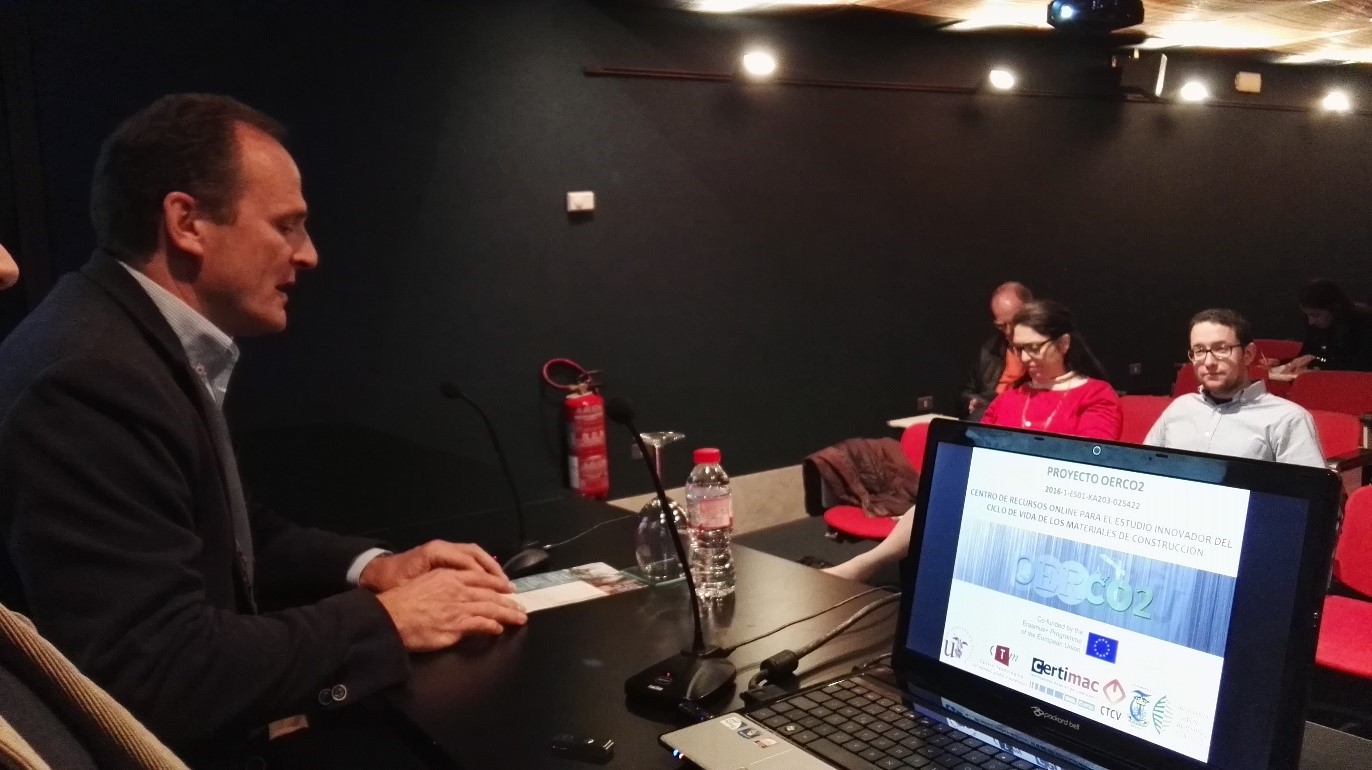
The first international seminar of the OERCO2 Project was held on October 25th at the Colegio Oficial de Arquitectos de la Región de Murcia (COAMU).
This seminar, organised by the Asociación Empresarial de Investigación Centro Tecnológico del Mármol, Piedra y Materiales (CTM), was attended by experts and entrepreneurs from the construction and environmental policy sectors in Spain and from the educational field, as well as all the project members: Universidad de Sevilla (USE), Asociación Empresarial de Investigación Centro Tecnológico del Mármol, Piedra y Materiales (CTM), CertiMaC Soc. Cons, a r. L. (CertiMaC), Centro Tecnológico da Ceramica e do Vidrio (CTCV), Universitatea Transilvania Din Brasov (UTBV), Asociatia Romania Green Building Council (RoGBC).
This event served as a presentation of the OERCO2 Project and the first Intellectual Output carried out up to the day of this seminar: “Study of the methodology for CO2 calculation of constructive processes and life cycle analysis. Common European Curricula”. The feedback provided by the surveys delivered to attendees will be used to reorient strategies for achieving the objectives of the Project.
From these surveys it can be concluded that both academic and professional groups consider that professionals in the sector have a great deal of influence on the selection of construction materials to be used in the building project. However, professionals believe that clients, environmental consultants and the regulation have a decisive influence on construction products, against the opinion of teachers and students of technical studies who feel that they have little influence.
In both cases, they consider that their knowledge on certain sustainable building materials is very basic and they are rarely used. Nevertheless, the level of professionals’ acceptance of some of these materials after being use is positive. Both groups believe that the price of these sustainable materials is the main drawback when it comes to their use.
Furthermore, the absence of demonstration projects and the negative perception of the construction industry, as well as the importance of monitoring strategies to promote the use of alternative construction materials and products is very high for academic actors in comparison with the opinion of professionals, who consider that it has a low importance.


